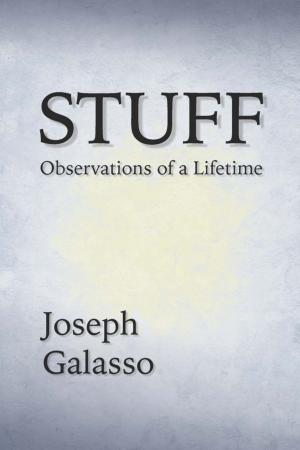HOMAGE TO LUXENBEN: Adventures on a Utopian Planet
Fiction & Literature, Literary, Science Fiction & Fantasy| Author: | Dan Hurwitz | ISBN: | 9781621411758 |
| Publisher: | BookLocker.com, Inc. | Publication: | April 30, 2012 |
| Imprint: | Language: | English |
| Author: | Dan Hurwitz |
| ISBN: | 9781621411758 |
| Publisher: | BookLocker.com, Inc. |
| Publication: | April 30, 2012 |
| Imprint: | |
| Language: | English |
Stelzer, inadvertently, and Neuman, intentionally, find themselves on a spaceship bound for Luxenben, a utopian planet. Once they arrive, Stelzer, a middle-age business man, is quartered in a zoological garden where he has no duties other than to roam the grounds during the institution’s open hours, be hospitable to zoo visitors, and graciously accept little bags of mixed nuts sold at the concession stand. His living conditions are likewise amenable: excellent food, a commodious studio apartment, and the pleasant companionship of fellow inmates once he becomes accustomed to their various physiologies. On the other hand, Neuman, Stelzer’s radicalized young companion, is whisked off to Product Development on the Research Campus and is held there incommunicado.
Whereas the inhabitants of Luxenben enjoy an entirely peaceful society, the zoo’s ambiance is more contentious. Its inmates split into two ideologically-driven political factions-one in favor of the zoo’s administration the other pitted against it. Stelzer becomes an active supporter of the former. Emerging from Research, a changed Neuman also becomes embroiled in the conflict but with mysteriously oblique motives.
The book ends in a cascading series of surprises in which are revealed the election results, its secretive purpose, Stelzer’s reversed affiliations, and Neuman’s role in all of the above.
The story gives the author an opportunity to showcase the planet’s coherent political, economic, social, and religious systems all based on a bedrock philosophical premise-i.e., the relation of its inhabitants’ to nature. Thus its political system is modeled on the intelligent brain with separate autonomic and voluntary branches. Proposals for new laws percolate from the bottom tiers of society upward through a review process until being finally vetted by a rotating expert panel-all without legislative or executive interference. The cashless economy is divided into two zones, personal and commercial between which money flow is carefully regulated. The commercial sphere operates on free-market principles and is untaxed. Earnings from the commercial sphere are channeled into into individual bank accounts from which a wealth assessment is automatically skimmed off every month. In short the system retains all the incentives of capitalism but prevents the accumulation of inherited fortunes. Private organizations take care of the population’s social needs without governmental subsidy. And finally, the planet’s inhabitants practice an ethical faith that recognizes no divinity other than nature. An underlying feedback mechanism governs all four systems and unites the planets activities with her phenomena.
And, by way of full disclosure, the book’s fiction indulges the author’s compulsion to ambush the reader with, what he purports to be, periodic stabs at humor. Be that as it may, the author concludes by agreeing with the book’s characters that Luxenben is, indeed, the most agreeable planet in the galaxy and joins them in paying homage to it.
Not your usual science fiction.
Stelzer, inadvertently, and Neuman, intentionally, find themselves on a spaceship bound for Luxenben, a utopian planet. Once they arrive, Stelzer, a middle-age business man, is quartered in a zoological garden where he has no duties other than to roam the grounds during the institution’s open hours, be hospitable to zoo visitors, and graciously accept little bags of mixed nuts sold at the concession stand. His living conditions are likewise amenable: excellent food, a commodious studio apartment, and the pleasant companionship of fellow inmates once he becomes accustomed to their various physiologies. On the other hand, Neuman, Stelzer’s radicalized young companion, is whisked off to Product Development on the Research Campus and is held there incommunicado.
Whereas the inhabitants of Luxenben enjoy an entirely peaceful society, the zoo’s ambiance is more contentious. Its inmates split into two ideologically-driven political factions-one in favor of the zoo’s administration the other pitted against it. Stelzer becomes an active supporter of the former. Emerging from Research, a changed Neuman also becomes embroiled in the conflict but with mysteriously oblique motives.
The book ends in a cascading series of surprises in which are revealed the election results, its secretive purpose, Stelzer’s reversed affiliations, and Neuman’s role in all of the above.
The story gives the author an opportunity to showcase the planet’s coherent political, economic, social, and religious systems all based on a bedrock philosophical premise-i.e., the relation of its inhabitants’ to nature. Thus its political system is modeled on the intelligent brain with separate autonomic and voluntary branches. Proposals for new laws percolate from the bottom tiers of society upward through a review process until being finally vetted by a rotating expert panel-all without legislative or executive interference. The cashless economy is divided into two zones, personal and commercial between which money flow is carefully regulated. The commercial sphere operates on free-market principles and is untaxed. Earnings from the commercial sphere are channeled into into individual bank accounts from which a wealth assessment is automatically skimmed off every month. In short the system retains all the incentives of capitalism but prevents the accumulation of inherited fortunes. Private organizations take care of the population’s social needs without governmental subsidy. And finally, the planet’s inhabitants practice an ethical faith that recognizes no divinity other than nature. An underlying feedback mechanism governs all four systems and unites the planets activities with her phenomena.
And, by way of full disclosure, the book’s fiction indulges the author’s compulsion to ambush the reader with, what he purports to be, periodic stabs at humor. Be that as it may, the author concludes by agreeing with the book’s characters that Luxenben is, indeed, the most agreeable planet in the galaxy and joins them in paying homage to it.
Not your usual science fiction.















